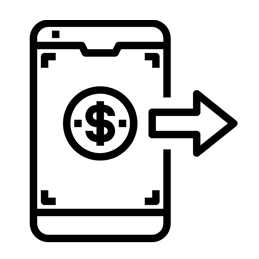Currency Exchange Options for Expats Living in Ghana
For expats living in Ghana, having access to reliable currency exchange services is essential for managing their finances effectively. Here are some currency exchange options available to expats in Ghana:
-
Banks:
- Commercial banks in Ghana offer currency exchange services to their customers. Expats can visit bank branches and exchange their foreign currency for Ghanaian Cedis (GHS) or vice versa.
- It’s advisable to compare exchange rates and fees charged by different banks to ensure you get the best deal. Some banks may also require you to have an account with them to access currency exchange services.
-
Foreign Exchange Bureaus:
- Foreign exchange bureaus are specialized entities that provide currency exchange services. They are commonly found in major cities and tourist areas in Ghana.
- These bureaus offer competitive exchange rates and convenient services for expats who need to convert their foreign currency into Ghanaian Cedis. It’s important to verify the credibility and licensing of the bureau before conducting any transactions.
-
Online Currency Exchange Platforms:
- Online currency exchange platforms provide a convenient way to exchange currencies digitally. Expats can use these platforms to convert their foreign currency into Ghanaian Cedis or transfer money internationally.
- Popular online platforms include TransferWise, PayPal, and Revolut. These platforms often offer competitive exchange rates and lower transaction fees compared to traditional banking channels.
- Ensure that the online platform is reputable, secure, and compliant with financial regulations when using these services.
-
Money Transfer Operators:
- Money transfer operators such as Western Union and MoneyGram are widely available in Ghana. Expats can use these services to send and receive money internationally and convert currencies in the process.
- These services are often fast and convenient, allowing expats to send money to their home countries or receive funds from abroad. However, fees and exchange rates may vary, so it’s advisable to compare different operators to find the most cost-effective option.
-
Peer-to-Peer Currency Exchanges:
- Some online platforms facilitate peer-to-peer currency exchanges, allowing individuals to exchange currencies directly with each other. These platforms often provide competitive exchange rates and lower fees.
- Examples of peer-to-peer currency exchange platforms include CurrencyFair and TransferWise’s “Borderless” account. These platforms match individuals looking to exchange currencies in opposite directions, bypassing traditional banking intermediaries.
When utilizing any currency exchange option, it’s important to consider the following factors:
- Exchange Rates: Compare rates offered by different providers to ensure you’re getting a fair deal.
- Fees and Charges: Take into account any transaction fees, commission charges, or hidden costs associated with the currency exchange service.
- Security and Trustworthiness: Use reputable and licensed providers to ensure the safety of your funds and personal information.
- Convenience and Accessibility: Consider the location, opening hours, and accessibility of the currency exchange service provider.
- Regulatory Compliance: Verify that the currency exchange provider is compliant with local financial regulations to protect yourself against fraudulent activities.
It’s advisable to plan your currency exchanges ahead of time and monitor exchange rates to make the most informed decisions. Consulting with local experts or fellow expats can also provide valuable insights into the best currency exchange options available in Ghana.
Related Pages:
Send Money
The future of financial transactions and many more all at your fingertips.
Data Protection
RemitM is registered with the Information Commissioner’s Office (ICO), the UK’s independent authority set up to uphold information rights in the public interest.
You can visit the ICO website to learn more about data protection or search the ICO register to view details of Remitm’s registration (Registration Number: ZA526026)
Client Funds
All clients’ funds are held in a dedicated client account separate from RemitM’s funds, in line with our regulatory framework and consistent with good practice.
We earn no interest from holding client funds, as your payments and transfers are not held by us and are remitted to recipients upon receipt.
Online Security
Your data is transmitted in a secure way and all password data is encrypted.



